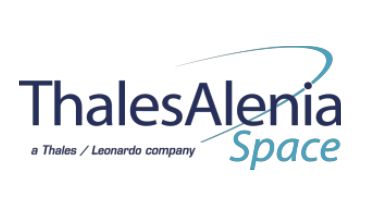
The CRISTAL satellite will feature, for the first-time, a dual-frequency Ku/Ka-band radar altimeter to measure and monitor sea-ice thickness and overlying snow depth.
Thales Alenia Space, the joint company between Thales and Leonardo, signed an amendment to the CRISTAL contract with Airbus Defence and Space, prime contractor for the satellite. The amendment provides for the development and qualification of IRIS, the Interferometric Radar Altimeter for Ice and Snow to be carried on the Copernicus polaR Ice and Snow Topography ALtimeter (CRISTAL) mission. CRISTAL is part of the European Space Agency’s Copernicus Expansion program, in partnership with the European Commission. Copernicus is a European flagship program providing Earth observation and in situ data, along with a broad range of services for environmental monitoring and protection, climate monitoring and natural disaster assessment to improve the quality of life for all European citizens.

The signature of this amendment marks a critical step forward in the CRISTAL mission, designed to measure the thickness of sea ice and the height of ice caps — two key indicators of climate change. Thales Alenia Space has completed the first phase in this contract (B2), awarded by Airbus in 2020, concerning the preliminary design of the altimeter, with the instrument passing its preliminary design review. It now enters the detailed design, qualification and final development phase (phase CD). The altimeter will be delivered to Airbus in 2025 for integration in the CRISTAL satellite, slated for launch in 2027.

The CRISTAL satellite will feature, for the first-time, a dual-frequency Ku/Ka-band radar altimeter to measure and monitor sea-ice thickness and overlying snow depth. Measurements of sea-ice thickness will support maritime operations and also help plan activities in the polar regions. IRIS will also measure and monitor changes in the height of ice sheets and glaciers around the world, using its interferometric radar capabilities. IRIS will significantly improve the measurement accuracy of its predecessor, SIRAL-2 (a Ku-band only altimeter on ESA’s CryoSat-2 Earth Explorer mission), due to its dual frequency operation and the addition of sea surface height measurement capability. The CRISTAL mission operates on a global scope and is a key to better understanding and monitoring the Earth’s climate in a context of rapid climate change.
“Thales Alenia Space is proud to contribute to the CRISTAL mission, which will play a critical role in understanding and monitoring climate change, as supplier of the IRIS altimeter, which draws on our long- standing expertise in space altimetry and proven flight heritage on SIRAL-2,” said Hervé Derrey, President and CEO of Thales Alenia Space. “Polar regions have a real influence on global climate models, thermohaline circulation and the global energy balance. A long-term program to monitor Earth polar ice, ocean and snow topography, such as CRISTAL, is therefore extremely important.”
The development of the IRIS altimeter will call on the legacy of several advanced altimeters produced by Thales Alenia Space for major programs, including SIRAL-2, Poseidon 4 on Sentinel-6/Jason-CS, AltiKa on the CNES/ISRO SARAL satellite and KaRIn on the CNES/JPL SWOT satellite. Thales Alenia Space is also the first company to make an interferometric SAR altimeter (SIRAL) to be proven in orbit, confirming its unrivaled expertise in interferometric radar electronics and antennas.
